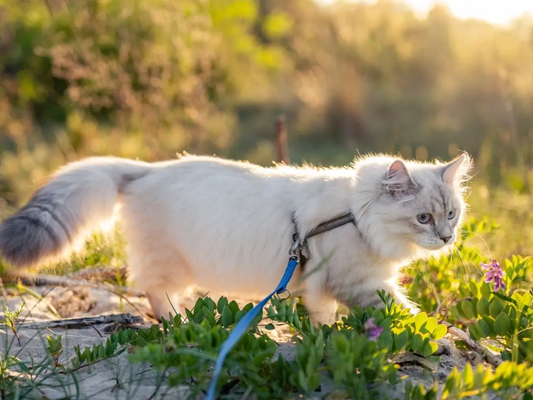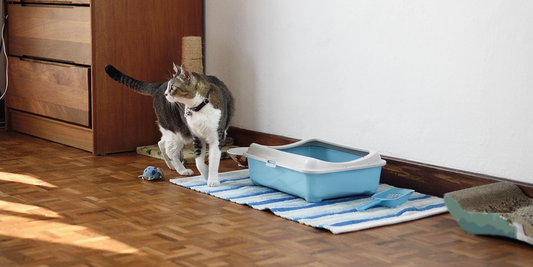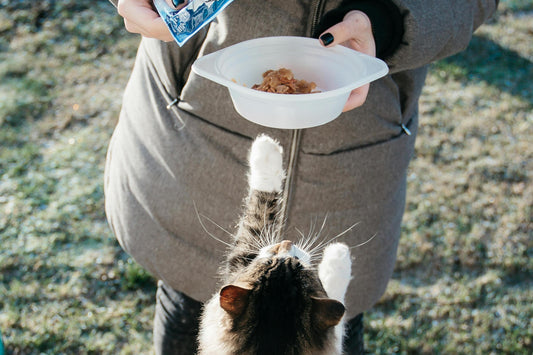Introduction:
Cat constipation is a common concern among pet owners, often leading to discomfort and distress for our beloved feline companions. While occasional constipation is normal, chronic issues can indicate underlying health problems. Understanding the causes, symptoms, and effective remedies for cat constipation is crucial for maintaining your pet's well-being. In this comprehensive guide, we'll explore everything you need to know about cat constipation and how to address it effectively.
Cat Constipation: Understanding the Basics
Feline constipation occurs when a cat has difficulty passing stool, resulting in infrequent bowel movements or straining during defecation. This condition can be caused by various factors, including dehydration, inadequate fiber intake, hairballs, underlying medical conditions, or obstructions in the digestive tract. Recognizing the signs of constipation in your cat is essential for prompt intervention and treatment.
Signs and Symptoms of Cat Constipation
Cat constipation manifests through several telltale signs, including:
- Infrequent or absent bowel movements
- Straining or difficulty passing stool
- Lethargy and decreased appetite
- Abdominal discomfort or bloating
- Dry, hard stools or small amounts of feces
- Vocalization or distress during defecation
Identifying these symptoms early can help prevent complications and ensure timely management of your cat's condition.
Causes of Cat Constipation
Understanding the underlying causes of cat constipation is crucial for implementing effective preventive measures and treatment strategies. Several factors can contribute to this condition, including:
Dehydration:
Inadequate water intake can lead to dehydration, resulting in dry, hard stools that are difficult for your cat to pass. Encouraging proper hydration is essential for maintaining healthy bowel function.
Low-Fiber Diet:
A lack of dietary fiber can contribute to constipation in cats by reducing stool bulk and slowing down the digestive process. Ensure your cat's diet includes sufficient fiber from sources such as canned pumpkin, psyllium husk, or specialized high-fiber cat foods.
Hairballs:
Cats are meticulous groomers and often ingest loose hair while grooming, leading to the formation of hairballs in the digestive tract. These hairballs can obstruct the intestines and contribute to constipation.
Underlying Health Issues:
Certain medical conditions such as megacolon, pelvic injuries, or neurological disorders can predispose cats to chronic constipation. Consulting with your veterinarian is essential for diagnosing and treating any underlying health problems contributing to your cat's constipation.
Preventing Cat Constipation
Taking proactive steps to prevent cat constipation is essential for maintaining your pet's digestive health and overall well-being. Here are some practical tips to help prevent constipation in cats:
Provide Adequate Hydration:
Ensure your cat has access to fresh, clean water at all times. Consider incorporating wet food into your cat's diet, as it has higher moisture content than dry kibble.
Promote Fiber Intake:
Include fiber-rich foods in your cat's diet, such as canned pumpkin or high-fiber cat foods recommended by your veterinarian. These dietary fibers help promote regular bowel movements and prevent constipation.
Encourage Physical Activity:
Regular exercise and playtime can help stimulate your cat's digestive system and promote healthy bowel function. Engage your cat in interactive play sessions to encourage movement and prevent sedentary behavior.
Monitor Hairball Control:
Implement grooming practices to minimize hairball ingestion, such as regular brushing to remove loose fur and reduce the risk of hairballs forming in the digestive tract.
Treatment Options for Cat Constipation
When faced with cat constipation, prompt intervention is essential to relieve your pet's discomfort and prevent complications. Here are some effective treatment options for cat constipation:
Increase Fluid Intake:
Encourage your cat to drink more water by providing multiple water bowls throughout your home or using a pet fountain to entice them to drink.
Dietary Modifications:
Consult with your veterinarian to formulate a dietary plan tailored to your cat's needs, incorporating fiber-rich foods or supplements to promote regular bowel movements.
Laxatives or Stool Softeners:
Your veterinarian may prescribe medications such as laxatives or stool softeners to help alleviate constipation and facilitate bowel movements in your cat.
Enemas:
In severe cases of constipation, your veterinarian may administer enemas to help soften stool and facilitate evacuation of the bowels.
Surgical Intervention:
In rare cases where constipation is caused by underlying anatomical abnormalities or obstructions, surgical intervention may be necessary to correct the issue and restore normal bowel function.
FAQs (Frequently Asked Questions)
1. What causes cat constipation? Cat constipation can be caused by various factors, including dehydration, low-fiber diets, hairballs, and underlying health issues such as megacolon or pelvic injuries.
2. How can I tell if my cat is constipated? Watch for signs such as infrequent or absent bowel movements, straining during defecation, lethargy, and abdominal discomfort. If you notice these symptoms, consult with your veterinarian for proper evaluation and treatment.
3. Is cat constipation a serious condition? While occasional constipation is common and may resolve on its own, chronic constipation can indicate underlying health problems and may require veterinary intervention. Prompt treatment is essential to prevent complications such as obstipation or megacolon.
4. Can I treat my cat's constipation at home? Mild cases of constipation may respond to home remedies such as increasing fluid intake, dietary modifications, or gentle abdominal massage. However, it's crucial to consult with your veterinarian before attempting any home treatments to ensure they're safe and effective for your cat.
5. How can I help prevent cat constipation? Promote proper hydration, provide a balanced diet rich in fiber, encourage regular exercise, and minimize hairball ingestion through grooming practices. These preventive measures can help maintain your cat's digestive health and reduce the risk of constipation.
6. When should I seek veterinary care for my cat's constipation? If your cat is experiencing persistent or severe constipation, or if you notice any concerning symptoms such as vomiting, lethargy, or abdominal pain, it's important to seek prompt veterinary care. Your veterinarian can perform a thorough evaluation and recommend appropriate treatment options based on your cat's individual needs.
Conclusion:
Cat constipation is a common but concerning issue that can impact your pet's health and quality of life. By understanding the causes, symptoms, and treatment options for cat constipation, you can take proactive steps to ensure your feline friend maintains optimal digestive health. Remember to monitor your cat's bowel habits closely, provide a balanced diet, and seek veterinary care promptly if you suspect any signs of constipation. With proper care and attention, you can help your cat enjoy a happy, healthy life free from digestive discomfort.








